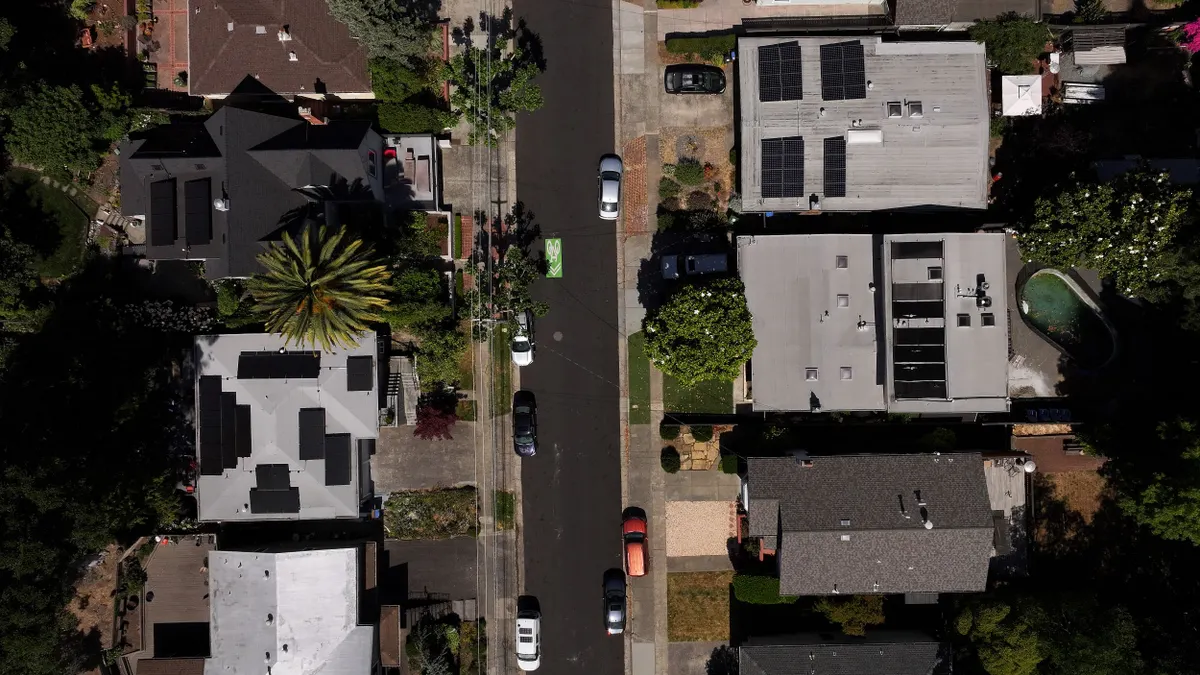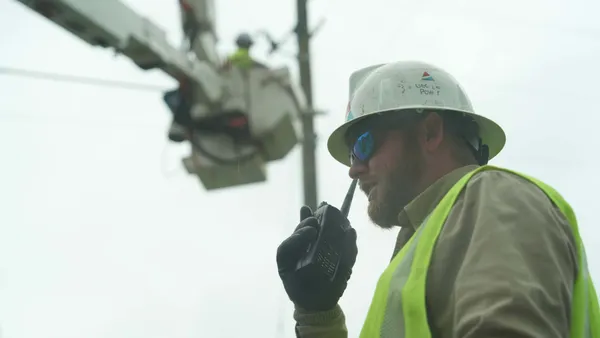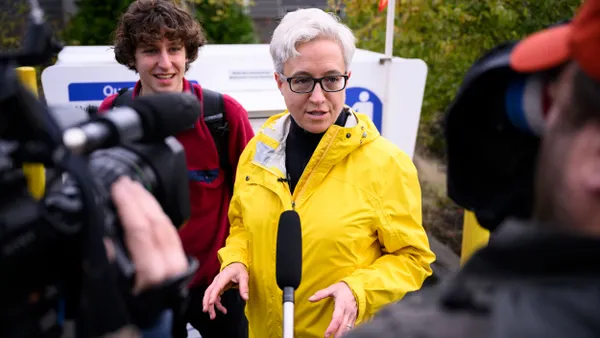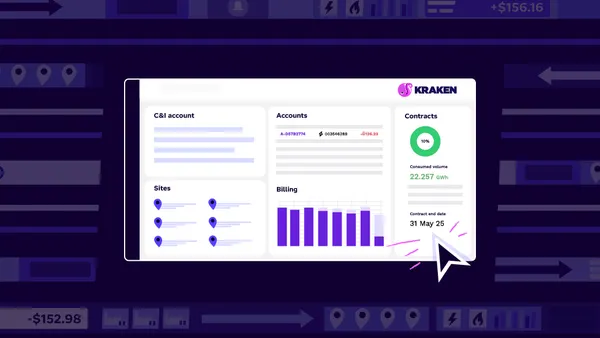Dive Brief:
- A biennial cybersecurity exercise run by the North American Electric Reliability Corp. has highlighted the "urgent need to consider technical alternatives" to the communications systems typically used by grid operators and which might not be available in the event of an attack and widespread blackout.
- NERC officials on Thursday released the after-action report for GridEx VI, which was held in November and allowed utility workers and executives to run through emergency plans in response to a simulated attack.
- Grid operators have communications backups in place, but the report highlights the importance of understanding "the minimum requirements needed at any given location for power to be restored effectively," U.S. Cybersecurity and Infrastructure Security Agency Executive Director Brandon Wales said during a Thursday media briefing.
Dive Insight:
Telecommunications companies have been involved in prior GridEx simulations, but NERC and other U.S. government officials on Thursday said the most recent iteration was specifically designed with their participation in mind.
Utility executives during GridEx worked through a tabletop scenario that involved coordinated cyber and physical attacks on the power grid across North America, and included other critical infrastructure sectors including telecommunications, water and gas. The scenario included a widespread loss of landline and cellular communications.
"What was different this time, is the scenario that was put forth really tested the interdependence between telecommunications, and their reliance on us," said NERC Senior Vice President Manny Cancel, who is also CEO of NERC's Electricity Information Sharing and Analysis Center, which runs GridEx.
"In a crisis, we have to make sure that we maintain our connection to the other critical infrastructure sectors," Cancel said.
Executive recommendations in the after-action report included strengthening "operational coordination between the electricity industry and communications providers." Officials acknowledge there is a chicken and egg problem, where communications systems require electricity to run, but those systems might not be available in a blackout.
"Participants agreed that the loss of communications would essentially halt the grid restoration process," the report said. "In the case of essential grid communications services, there is an urgent need to consider technical alternatives that have rudimentary functionality and high reliability in case of an extreme telecommunications disruption."
"This is not a trivial initiative," the report stressed.
"There's obviously a mutually interdependent relationship, where communications companies can't operate effectively without power and power companies can't do the restoration without carefully sequencing and coordinating that using communications," Wales said. However, he added that the report "is not implying that there are no backups."
Utilities now use satellite phones, mobile radios and other communication methods when landline and cell service are unavailable. But Wales said there are questions around what kind of support the government can provide, and what companies should be prepared to handle on their own.
"I think that's going to be some of the work that we do over the next two years before the next GridEx," he said. "How do we make improvements there, so we have a lot more certainty about our degree of resilience when it comes to communications supporting and enabling rapid restoration of power."














